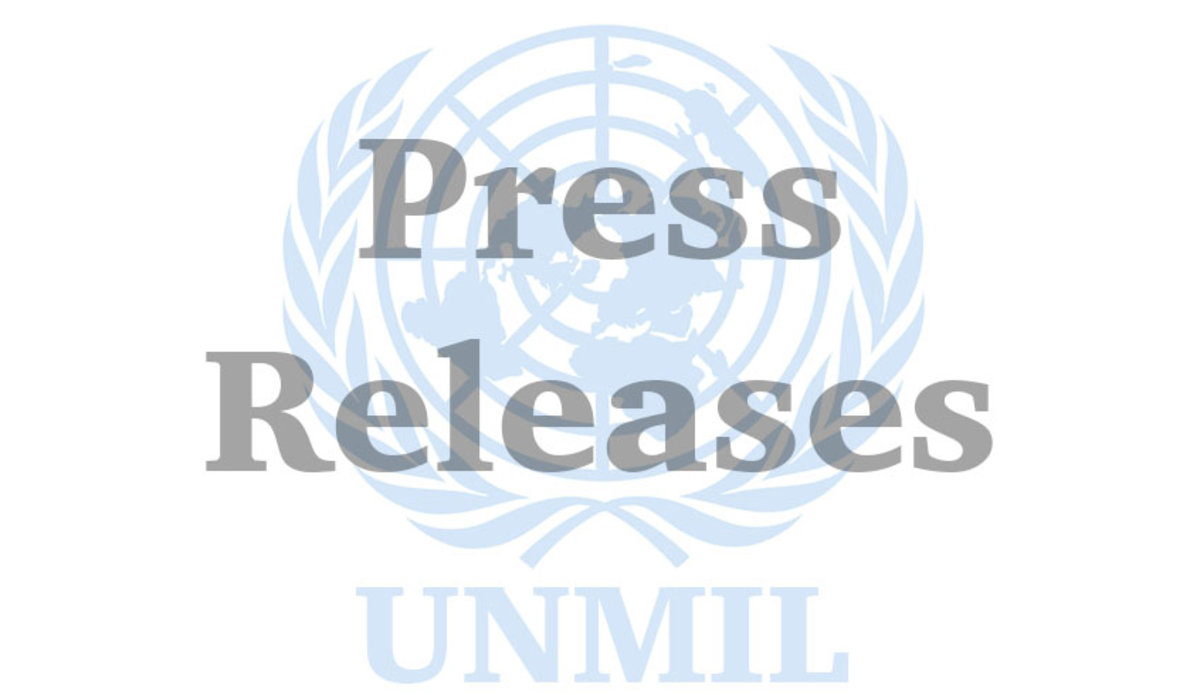Implementing TRC recommendations: Five years on, an opportunity for a fresh start
Monrovia, 30 June, 2014 - On 30 June 2009, at the end of a three-year process in which Liberians of all walks of life were engaged, Liberia’s Truth and Reconciliation Commission (TRC) released its Consolidated Final Report.
“Five years after the release of the TRC report, it is important to review progress in implementing its recommendations”, said Ms. Karin Landgren, Special Representative of the UN Secretary-General for Liberia and Head of the United Nations Mission in Liberia (UNMIL).
On 10 March 2010, President Ellen Johnson Sirleaf, in her first quarterly report to the Legislature on progress in implementation of the recommendations of the TRC, highlighted the importance of the TRC report, calling it “essential for achieving justice, reconciliation and continued economic, social and political rehabilitation of Liberia.” As Liberia continues to deepen its inclusive political culture and the rule of law, it has adopted several national strategies that advance TRC recommendations. Foremost among these are the Strategic Roadmap for National Healing, Peacebuilding and Reconciliation, and the Agenda for Transformation. These, and other related reform initiatives, include economic empowerment and poverty reduction, the National Palava Hut Programme, the Whistle Blower Act of 2012, decentralization of political and economic power, constitutional review, justice sector reform, police reform, promotion of good governance and the rule of law, and the establishment of the Independent National Commission on Human Rights.
These initiatives are commendable. However, a number of TRC recommendations have not been acted upon, including prosecution for grave human rights violations and economic crimes committed during the conflict. The Palava Hut mechanism – the only current effort that foresees some form of justice, using traditional mechanisms – aims to address lower level crimes and has no jurisdiction over grave human rights violations committed during the conflict. The Agenda for Transformation recognizes that “true reconciliation in Liberia is currently hindered by inadequate accountability for human rights violations committed during the civil war - and this all needs to be addressed.“
On 26 June 2014, the Government held a round-table discussion to collect views on the enactment of war crimes legislation, including domestication of the Geneva Conventions and the Rome Statute. “Along with the ongoing efforts to reform the criminal justice system, this shows the Government’s clear commitment to the principle that there should be no impunity for war crimes and massive human rights violations. Sustaining that commitment is crucial for durable reconciliation”, said Ms. Landgren.
In the same spirit, and as the UN Secretary-General recommended in his most recent progress report on the United Nations Mission in Liberia, it is important that the President resume her quarterly reporting on progress in implementation of the TRC report, as mandated by the TRC Act. A further important step would be the wide dissemination and accessibility of the Report and its recommendations in reader-friendly versions. As the President stated in her first quarterly report, “The Report needs to be read thoroughly by all Liberians.” As the nation moves forward, public understanding of the content of the report and progress in its implementation would contribute to informed engagement and an environment of genuine reconciliation and national healing.
For further information, please contact:
Mathew Elavanalthoduka, mobile +231- 770319153 email mathew@un.org(link sends e-mail)
Seble Worku, mob +23177039157, eail: seblewongel@un.org(link sends e-mail)
UNMIL website: unmil.unmissions.org
 UN
UN United Nations Peacekeeping
United Nations Peacekeeping





